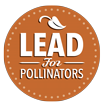“Executive Summary
[The Utah Physicians for a Healthy Environment] believe the evidence is clear and overwhelming:- Pesticides in general, including those used by SLCMAD, represent a widespread risk to human health even at low doses, especially for fetuses and infants.
- The VOCs from pesticide spraying is a significant contributor to local air pollution.
- Spraying is not effective in reducing mosquito populations.
- We must not allow a cure worse than the disease. The incidence of severe outcomes from West Nile Virus is so low that preventing those outcomes should not be allowed to eclipse the long list of other health and environmental concerns from pesticide use.
- Spraying does not reduce the incidence of WNV.
- Claims of safety for pesticide spraying use faulty logic and outdated, faulty science.
- There are multiple oversights, inadequacies, omissions, inconsistencies, and errors in the SLCMAD’s EA.
- Pesticide spraying has adverse impacts on beneficial insects, bird populations, wildlife, the ecosystem of the Great Salt Lake and beyond
- There are Better Ways to Control Mosquitoes
Conclusion
The scientific and empirical evidence is overwhelming that spraying adulticides to kill mosquitoes, especially aerial spraying, is ineffective, and can be even counterproductive, over the long term, and even the short term, to both goals of controlling mosquito populations and preventing West Nile Virus. Furthermore, the medical literature strongly indicates that routine aerial spraying over Salt Lake City’s airshed represents a broad-based danger to public health. Utah Physicians for a Healthy Environment (UPHE) implore SLCMAD to end all of their insecticide spraying for mosquitoes, whether from back packs, trucks, or airplanes. This practice is an institutionalized relic of the 1950s and should be stopped immediately.”
READ the full report at https://www.uphe.org/priority-issues/mosquito-pesticide-spraying/
